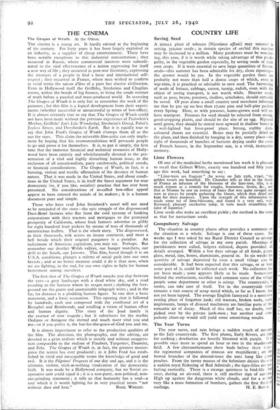Compulsory Salvage The situation in country places often provides a
comment on the situation as a whole. Salvage is one of these cases. Six weeks ago I was asked by my Rural District Council to arrange for the collection of salvage in my own parish. Meetings of parishioners were called, helpers enlisted, depots provided, all details arranged. Within a few days salvage of all kinds, paper, glass, metal, tins, bones, aluminium, poured in. In six weeks the quantity of salvage deposited by even a small village can be considerable. It had been expected that this salvage, or at least some part of it, could be collected each week. No collection has yet been made ; none appears likely to be made. Somewhere behind the enthusiasm, sacrifice and common sense of the village people some department or other is asleep. The countryside, it seems, can take care of itself. Yet in the countryside there remains a vast source of scrap metal which, so far as I know, has not yet been tapped. The average English farmyard is a notorious resting place of forgotten junk; old tractors, broken tools, rust/ implements, lumps of disused machinery are familiar parts of the romantic air of decay. Much of this stuff has, no doubt, been picked over by the private junk-men ; but another and com- pulsory clean-up would still yield some astonishing results.






























 Previous page
Previous page